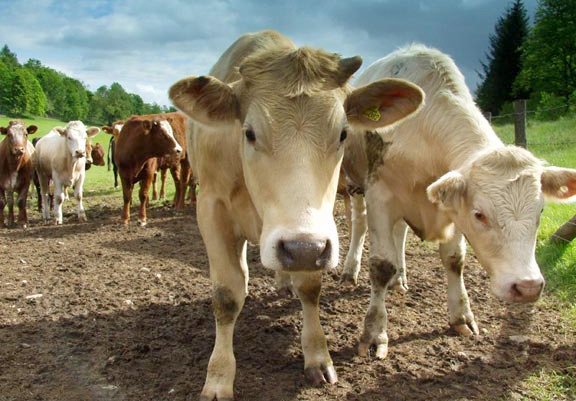
Livestock and dairy farmers have been warned to keep a close eye on the costs of production as input price volatility is 'here for the foreseeable future', the warning comes as Livestock 2012 is due to begin in September.
Speaking ahead of the 2012 Livestock Event at Birmingham’s NEC, Wilkinson said that whilst market forces were keeping beef prices attractive for farmers, input costs were likely to rise due to currency movements and increasing grain-based livestock feed prices caused by the US and Russian droughts. This is in stark contrast to the very wet and cool summer which the UK is still enduring.
In the UK, feed wheat was being priced up to £230 per tonne in July, compared to £182 per tonne the year previously. Meanwhile, currency fluctuations are diminishing returns for exported UK beef to Europe.
“Generally stagnant or declining EU cattle numbers, reduced supplies from South America and a very significant increase in EU beef exports have created a strong demand for UK beef within the UK" Wilkinson said.
"These market dynamics are keeping beef prices high which is very pleasing for farmers. That said, input costs are rising and livestock farmers must keep an eye on their own specific costs to ensure they don’t significantly erode existing margins.
“The main concerns for beef and sheep producers are primarily rising input costs, mainly feed, fertiliser and bedding straw. Concerns over CAP Reform have been placed on the back burner for the time being. While our whole farm budgets suggest some narrowing of the deficit between cost of production and sale prices, the vast majority of farmers continue to rely heavily on support payments for any level of profitability.”
Wilkinson added that communication needs to improve throughout the food chain to ensure all parties understand the needs of others. Farmers, processors and food retailers need to adopt an open dialogue to help avoid issues such as the recent blockades of milk distribution depots by farmers angry at the cut in milk prices.
“We need a proper functioning market across all sectors of farming and in order to achieve that we need better lines of communication. The recent milk situation demonstrated that the communication line throughout the chain needs improving, which leads to misunderstanding" he said.
